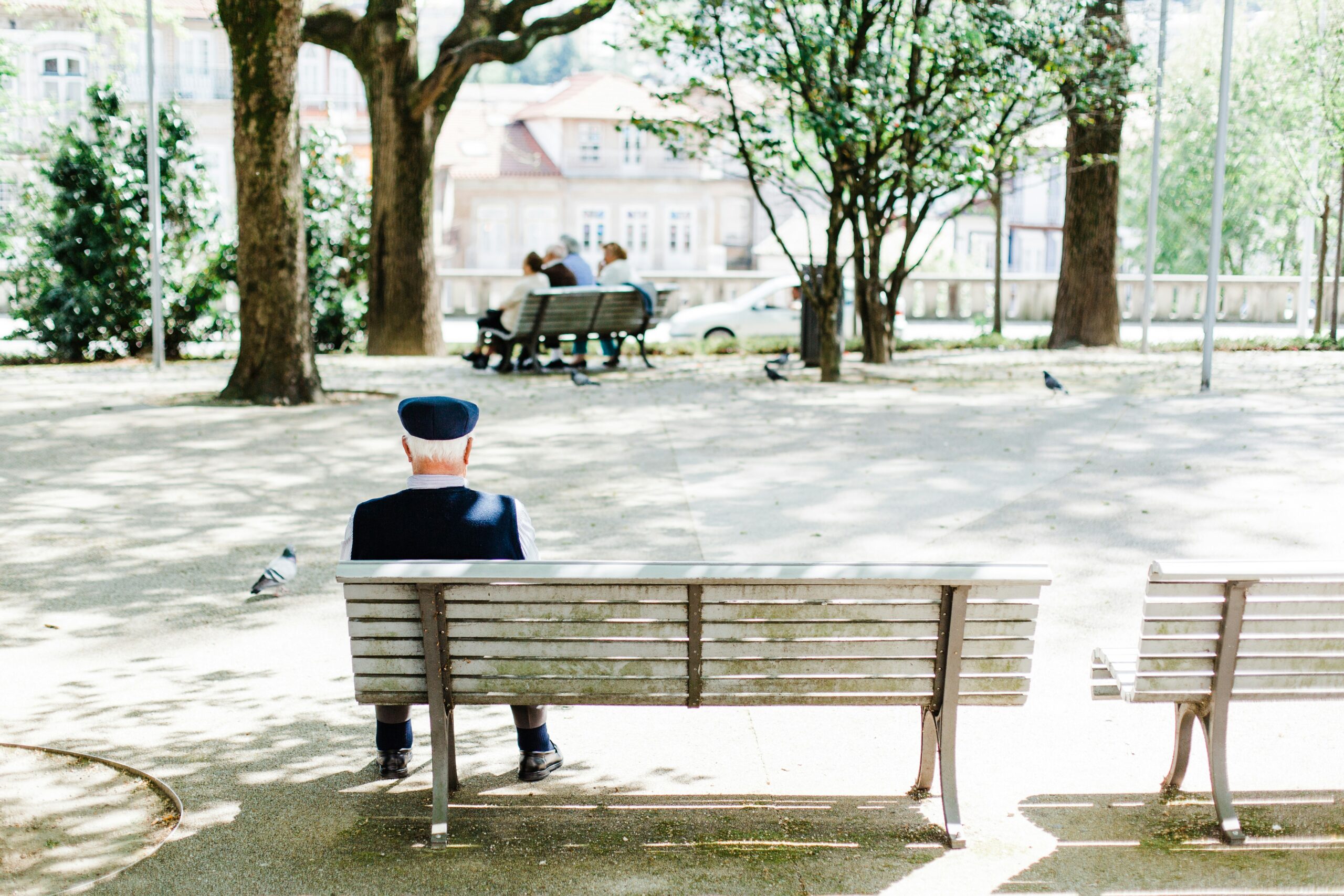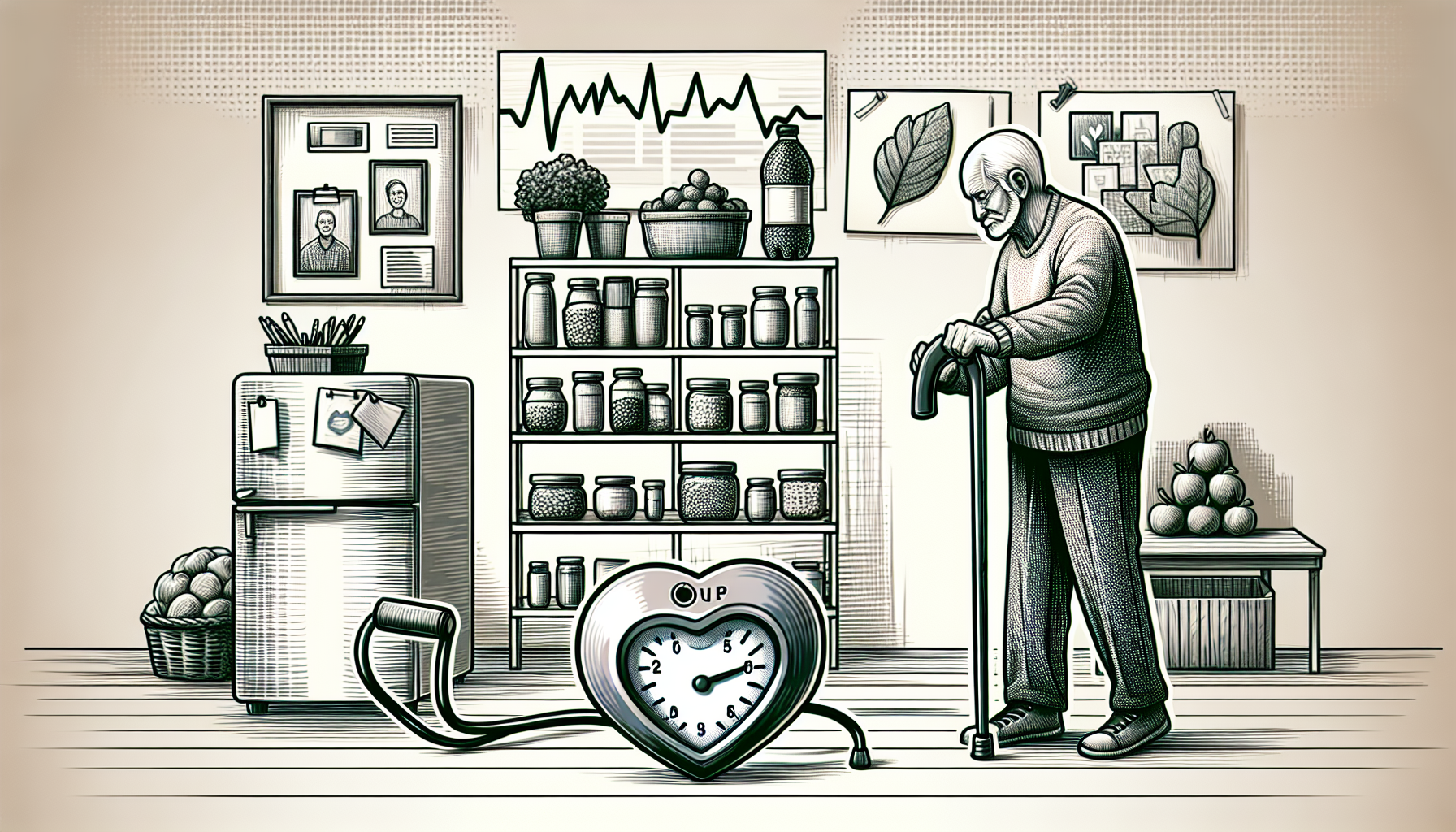As a senior, you may face unique challenges that require some extra planning and preparation to ensure your safety and well-being. In this article, we will explore some of the most important survival tips for seniors, ranging from practical advice for emergency situations to strategies for maintaining your overall health and happiness. By following these tips, you can enhance your ability to navigate everyday life and feel confident in your ability to handle whatever may come your way. So, let’s dive into these essential survival tips for seniors and empower you to live life to the fullest. As you age, it becomes increasingly important to prioritize your health and well-being. By incorporating certain habits and making thoughtful choices, you can enhance your overall quality of life and increase your chances of staying healthy and independent for longer. In this article, we will explore some key areas that are essential for seniors to focus on in order to thrive and maintain their well-being.
Health and Wellness
Regular Exercise
Engaging in regular physical activity is crucial for seniors as it offers numerous benefits for both the body and the mind. Exercise can help improve strength, flexibility, and balance, which are all essential for maintaining independence and reducing the risk of falls. Take part in activities you enjoy, such as walking, swimming, or tai chi. Consult with your healthcare provider to determine the most suitable exercises for your individual needs.
Healthy Diet
Eating a well-balanced diet is vital for seniors, as it provides the necessary nutrients for optimal health. Incorporate a variety of fruits, vegetables, whole grains, lean proteins, and healthy fats into your meals. Aim to limit processed foods, sugary snacks, and excessive sodium intake. Remember to stay hydrated by drinking an adequate amount of water throughout the day.
Proper Hydration
Maintaining proper hydration is essential for overall health, especially as we age. Dehydration can lead to various health complications, such as urinary tract infections, constipation, and even confusion. Make sure to drink enough water daily, even if you do not feel particularly thirsty. If you have difficulty staying hydrated, consider adding fruits and vegetables with high water content to your diet, like watermelon and cucumbers.
Fall Prevention
Keeping the Home Safe
Making your home environment safe is crucial for preventing falls. Remove any clutter or trip hazards that may be present. Ensure that walkways are clear and free from obstacles. Install handrails on staircases and in bathrooms to provide additional support.
Maintaining Good Lighting
Good lighting is essential for preventing falls and enhancing safety at home. Install bright lights in hallways, staircases, and other areas with potential hazards. Use nightlights in bedrooms and bathrooms to improve visibility during nighttime.
Using Mobility Aids
If you have difficulty with balance or mobility, consider using assistive devices such as canes, walkers, or grab bars. These aids can provide stability and support, reducing the risk of falls and injuries. Talk to your healthcare provider or physical therapist to determine the most appropriate mobility aids for your needs.

Medication Management
Organizing Medications
Managing medications can become increasingly complex as we age. To ensure safety and efficacy, it is important to organize your medications properly. Use pill organizers to sort medications by day and time, making it easier to track and take them as prescribed. Avoid storing medications in multiple locations to prevent confusion.
Keeping Track of Refills
Running out of medications can have serious consequences for your health. Keep track of when your prescriptions need to be refilled and make sure to order them in a timely manner. Consider setting up automatic refills with your pharmacy or using reminder apps to stay on top of your medication schedule.
Consulting with a Pharmacist
Do not hesitate to reach out to your pharmacist if you have any questions or concerns about your medications. They can provide valuable information regarding potential side effects, drug interactions, and proper usage. Pharmacists are an accessible resource and can offer valuable guidance to help you manage your medications safely.
Emergency Preparedness
Creating an Emergency Plan
Having a well-thought-out emergency plan is essential for seniors to ensure their safety during unexpected situations. Identify potential risks in your area, such as natural disasters or power outages, and create a plan that includes evacuation routes, emergency contacts, and essential items to have on hand.
Having Emergency Contacts
Make sure to have a list of emergency contacts readily available. Include phone numbers for family members, close friends, neighbors, and healthcare providers. Communicate your emergency plan with these individuals and ensure they are aware of your specific needs and medical conditions.
Assembling an Emergency Kit
Prepare an emergency kit that includes essential items you may need in the event of an emergency. This may include food, water, medications, a flashlight, batteries, a first aid kit, and important documents such as identification cards and medical information. Regularly check and update your emergency kit to ensure its contents are current and in good condition.

Financial Planning
Creating a Budget
Maintaining financial stability is important for seniors to alleviate stress and ensure their well-being. Create a budget that outlines your income, expenses, and savings goals. Consider consulting with a financial advisor to help you manage your finances effectively and plan for the future.
Managing Expenses
Review your expenses regularly to identify areas where you can potentially cut costs or make adjustments. This may involve reducing unnecessary subscriptions, renegotiating insurance plans, or exploring discounts and benefits available to seniors. Stay on top of bills and payment deadlines to avoid late fees or penalties.
Seeking Financial Assistance
If you are facing financial difficulties, explore available resources and assistance programs for seniors. There are various organizations and government programs that provide support with housing, healthcare, food, and other essential needs. Reach out to community centers, local agencies, or senior organizations for guidance and information on the assistance programs that may be available to you.
Social Support
Maintaining Relationships
Maintaining strong social connections is beneficial for seniors’ overall well-being. Make an effort to stay connected with family members, friends, and neighbors. Plan regular social activities or outings, whether it’s for a meal, a walk in the park, or simply having a conversation over the phone or video call. Engage in activities that bring you joy and allow you to connect with others.
Joining Senior Centers
Senior centers are a great way to connect with peers and engage in a variety of activities. These centers often offer classes, social events, and support groups tailored to seniors’ interests and needs. Joining a senior center can provide a sense of community, opportunities for new experiences, and access to valuable resources and services.
Participating in Community Activities
Engaging in community activities is not only enjoyable but also beneficial for seniors’ mental and physical well-being. Explore local community centers, libraries, or recreational facilities to discover activities such as exercise classes, art workshops, book clubs, or volunteer opportunities. Getting involved in community activities can help you stay active, make new friends, and contribute to the community.

Emotional Well-being
Seeking Emotional Support
Prioritizing your emotional well-being is crucial for overall health and happiness. Reach out to trusted friends, family, or mental health professionals if you are experiencing feelings of loneliness, anxiety, or depression. Seeking emotional support through therapy, support groups, or counseling can provide valuable outlets for discussing your feelings and receiving guidance.
Engaging in Hobbies
Engaging in hobbies and activities you enjoy is a wonderful way to boost your mood and cultivate a sense of fulfillment. Whether it’s gardening, painting, playing an instrument, or knitting, dedicating time to activities you love can help reduce stress, enhance creativity, and provide a sense of accomplishment.
Practicing Stress Reduction Techniques
Managing stress is important for seniors to maintain their overall well-being. Explore various stress reduction techniques such as deep breathing exercises, meditation, yoga, or mindfulness practices. Find what works best for you and incorporate these techniques into your daily routine to promote relaxation, enhance mental clarity, and reduce stress levels.
Preventing Elder Abuse
Knowing the Signs of Abuse
It is essential for seniors to be aware of the signs of elder abuse and neglect to protect themselves from potential harm. Common signs may include unexplained injuries, sudden changes in behavior, financial exploitation, or neglectful care by caregivers. If you suspect any form of abuse, report it to the appropriate authorities immediately.
Protecting Personal Information
Safeguarding your personal information is crucial in preventing fraud and identity theft. Be cautious when sharing personal details with individuals or organizations you are unfamiliar with. Shred important documents containing sensitive information before discarding them. Regularly monitor your financial accounts and credit reports for any suspicious activity.
Reporting Suspected Abuse
If you suspect that you or someone you know is being abused or neglected, it is vital to report it. Contact your local adult protective services or law enforcement agency to report the abuse and seek assistance. By reporting suspected abuse, you can help protect yourself or others from further harm.

Safety at Home
Ensuring Adequate Lighting
To enhance safety and reduce the risk of accidents at home, ensure that your living space is well-lit. Install bright lights in hallways, staircases, and outdoor areas. Consider using motion-sensor lights for added convenience and security.
Installing Handrails and Grab Bars
Adding handrails and grab bars in key areas, such as bathrooms and staircases, can provide additional support and stability. These assistive devices can help seniors maintain balance and prevent falls. Make sure they are securely installed by a professional or someone with proper knowledge.
Using Assistive Devices
Depending on your needs, consider utilizing assistive devices to make daily tasks easier and safer. This may include items such as reachers, shower chairs, or mobility aids like walkers or canes. Consult with a healthcare professional or occupational therapist to determine which assistive devices are suitable for your specific needs.
Transportation Options
Utilizing Public Transportation
Public transportation can be a convenient and cost-effective way for seniors to get around. Familiarize yourself with the public transportation options available in your area, such as buses or trains, and learn how to use them. Take advantage of senior discounts or special programs aimed at providing transportation support for older adults.
Arranging Rides with Family and Friends
If public transportation is not easily accessible or suitable for your needs, rely on family members, friends, or neighbors for rides. Coordinate schedules and plan ahead to ensure you have reliable transportation when needed. Express your gratitude for their assistance and consider offering to share expenses or provide help in return.
Exploring Senior Transportation Services
Many communities offer specialized transportation services designed specifically for seniors. These services may provide door-to-door transportation to medical appointments, grocery shopping, or social activities. Research local senior transportation programs and inquire about eligibility criteria, schedules, and reservation procedures.
By focusing on these key areas, you can empower yourself to lead a healthy, safe, and fulfilling life as a senior. Remember to seek support when needed, stay proactive in managing your well-being, and continue to embrace opportunities for growth and connection. Your well-being matters, and taking these survival tips to heart can make a significant difference in your overall quality of life.


